
《保险研究》20231108-《委托代理下的医保困境:省级统筹对基金收支的影响——以城镇职工基本医疗保险为例》(王增文、姚金)
[中图分类号]F840.684;R197.1[文献标识码]A[文章编号]1004-3306(2023)11-0104-15 DOI:10.13497/j.cnki.is.2023.11.008
资源价格:30积分
- 内容介绍
[摘 要]我国城镇职工基本医疗保险制度受制于过低的统筹层次,基金风险难以实现更大范围共济。本文以实施省级统筹的8个省份为例,探究城镇职工基本医疗保险省级统筹对基金收支的影响。研究发现:首先,职工医疗保险省级统筹使得人均基金收入降低10.4%,对人均基金支出无显著影响;其次,与未实施省级统筹相比,省级调剂金制度会使得人均基金收入降低9.8%,对人均基金支出无显著影响,省级统收统支制度会使得人均基金收入降低11.5%,人均基金支出上升18.6%;第三,当实际缴费率<政策缴费率、实施税务部门代征和系统老龄化程度≥28.07%,省级统收统支制度会使得人均基金收入显著降低,人均基金支出显著提高,采用反事实检验、改变估计方法和缩小样本量进行稳健性检验,结果依旧稳定;第四,实施省级调剂金制度和省级统收统支制度会使得全国总体财政责任分别增加14%和68.75%。因此,本文建议配套出台奖惩激励机制,实现医保机构垂直管理和采取渐进式改革路径。
[关键词]城镇职工基本医疗保险;省级统筹;基金收入;基金支出;面板数据
[基金项目]教育部人文社会科学规划基金项目“抚育成本与家庭收益失衡下破解低生育率难题的政策架构研究”(21YJA630093);河北省社科基金项目“医联体建设对优质医疗资源配置的均衡效应及优化路径研究”(HB23GL027);国社科基金青年项目“多支柱职工养老保险扩面机制及推进路径研究”(23CSH057)。
[作者简介]王增文,武汉大学政治与公共管理学院副院长,教授、博士生导师,研究方向:社会保障理论与政策;姚金,武汉大学社会保障研究中心博士研究生,研究方向:社会保险精算。
The Dilemma of Medical Insurance under Commissioning Agency:The Impact of Provincial-level Pooling on Fund Income and Expenditure—Take Urban Employee Basic Medical Insurance as an Example
ZENG wen,WANGJin-yao
Abstract:China′s urban employee basic medical insurance system is constrained by a low level of coordination,thus the system faces challenges in achieving more extensive risk-sharing.This study utilizes eight provinces that have implemented provincial-level pooling as case studies to investigate the impact of provincial-level pooling on the fund income and expenditure.The key findings are as follows:Firstly,the provincial-level pooling of urban employee basic medical insurance results in a 10.4% decrease in per capita fund income,with no significant impact on per capita fund expenditure.Secondly,when different provincial pooling models are examined and compared to the absence of provincial pooling,the provincial fiscal adjustment model leads to a 9.8% reduction in per capita fund income,with no significant impact on per capita fund expenditure.In contrast,the provincially pooled revenue and expenditure model leads to an 11.5% reduction in per capita fund income and an 18.6% increase in per capita fund expenditure.Thirdly,it is observed that when the actual contribution rate falls below the policy-mandated rate and implementation of tax department collection and the system′s aging level is greater than or equal to 28.07%,the provincially pooled revenue and expenditure model significantly lowers per capita fund income while raising per capita fund expenditure.The result remains stable after making a robustness test with counterfactual test,change of appraisal method and narrowing-down of samples.Fourthly,the implementation of provincial fiscal adjustment and provincial pooled revenue and expenditure systems respectively increase the overall financial responsibility by 14% and 68.75%.In conclusion,this paper puts forward the recommendations such as the introduction of a complementary reward and incentive mechanism,the achievement of vertically managed healthcare institutions,and the adoption of a progressive reform pathway.
Key words:urban employee basic medical insurance;provincial-level pooling;fund income;fund expenditure;panel data
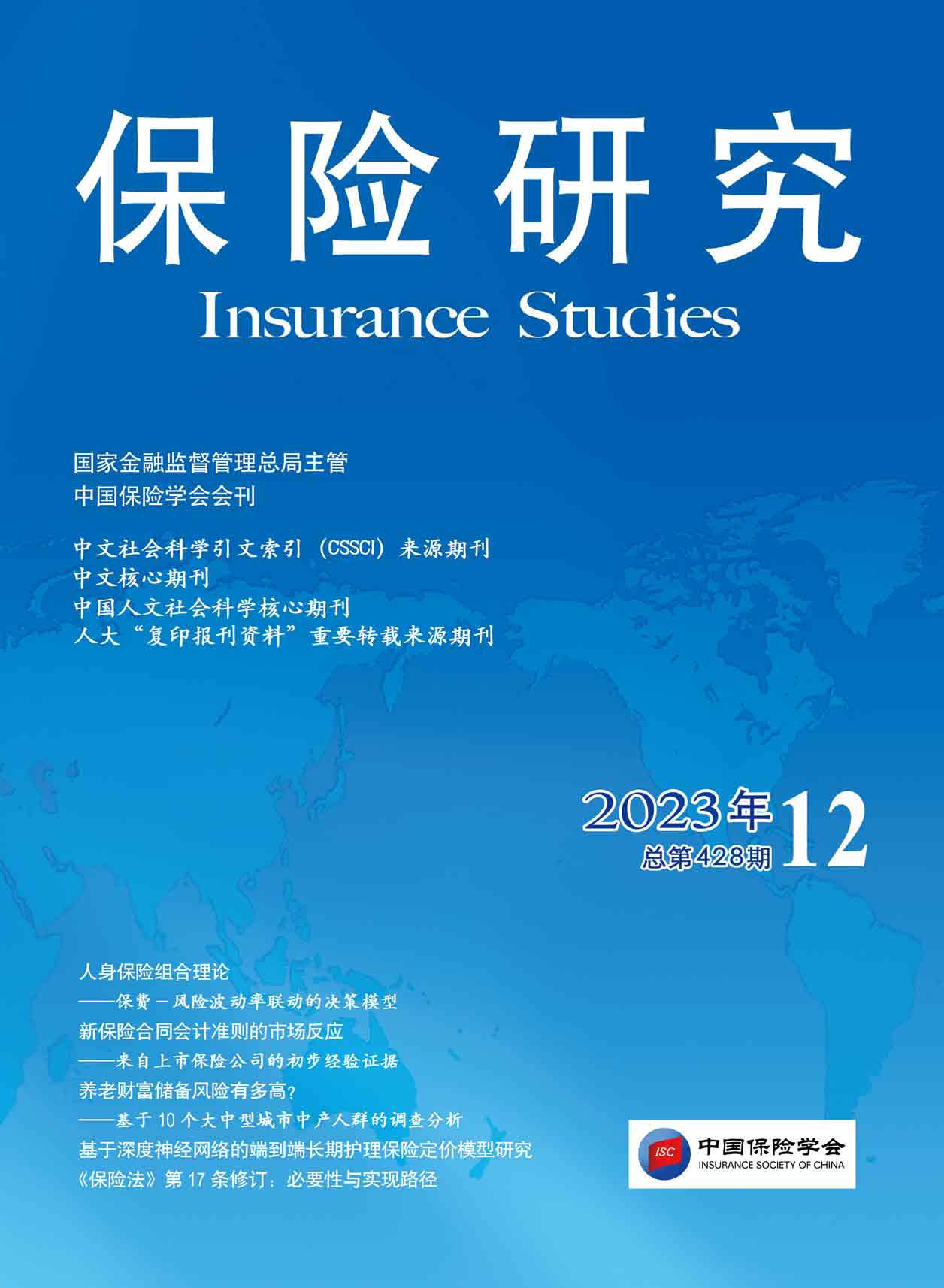
《保险研究》20231201-《人身保险组合理论——保费-风险波动率联动的决策模型》(张程、范雨文、曹铸、王洪彬)
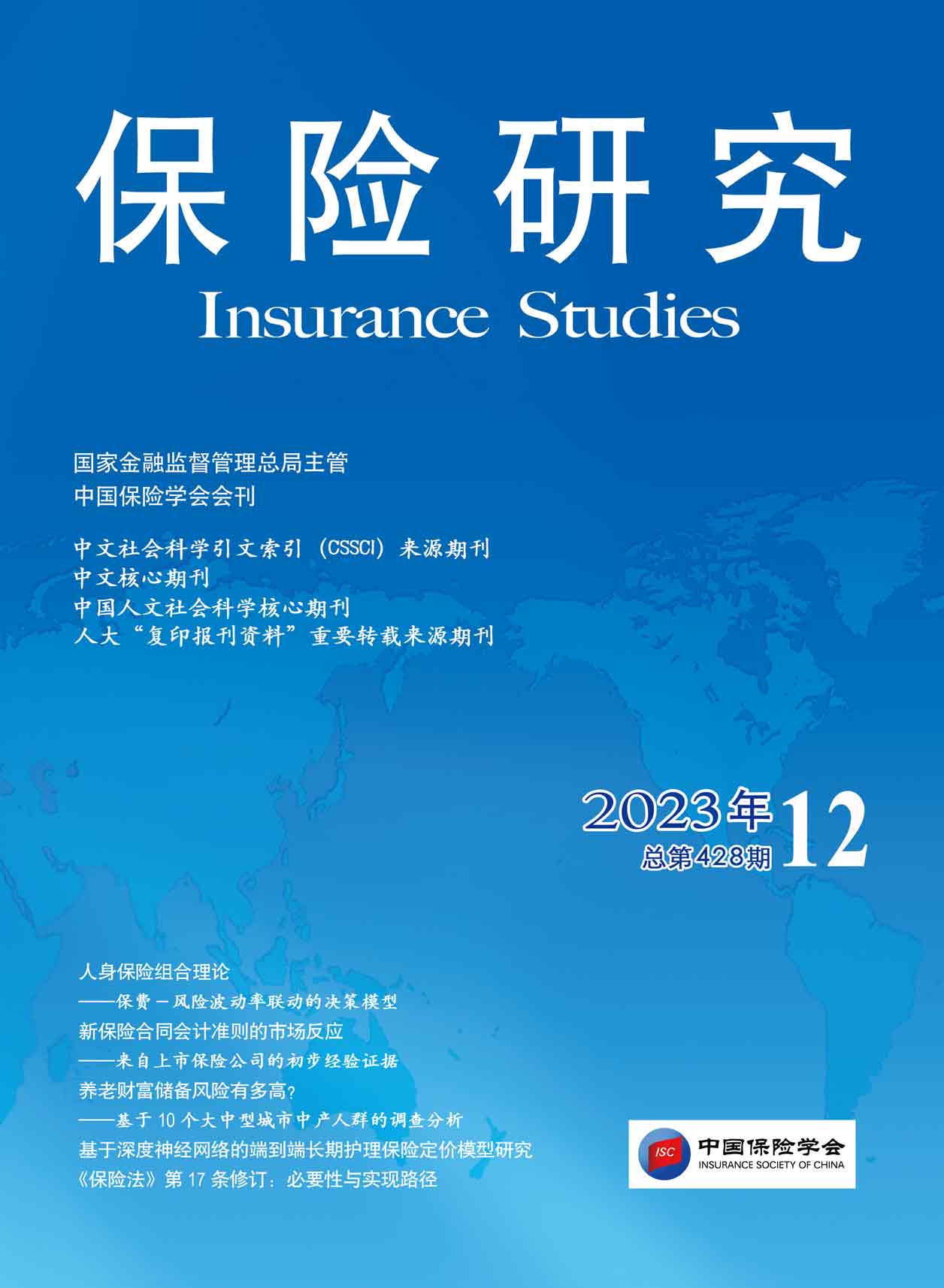
《保险研究》20231202-《新保险合同会计准则的市场反应——来自上市保险公司的初步经验证据》(彭雪梅、段伊雪、王佳)
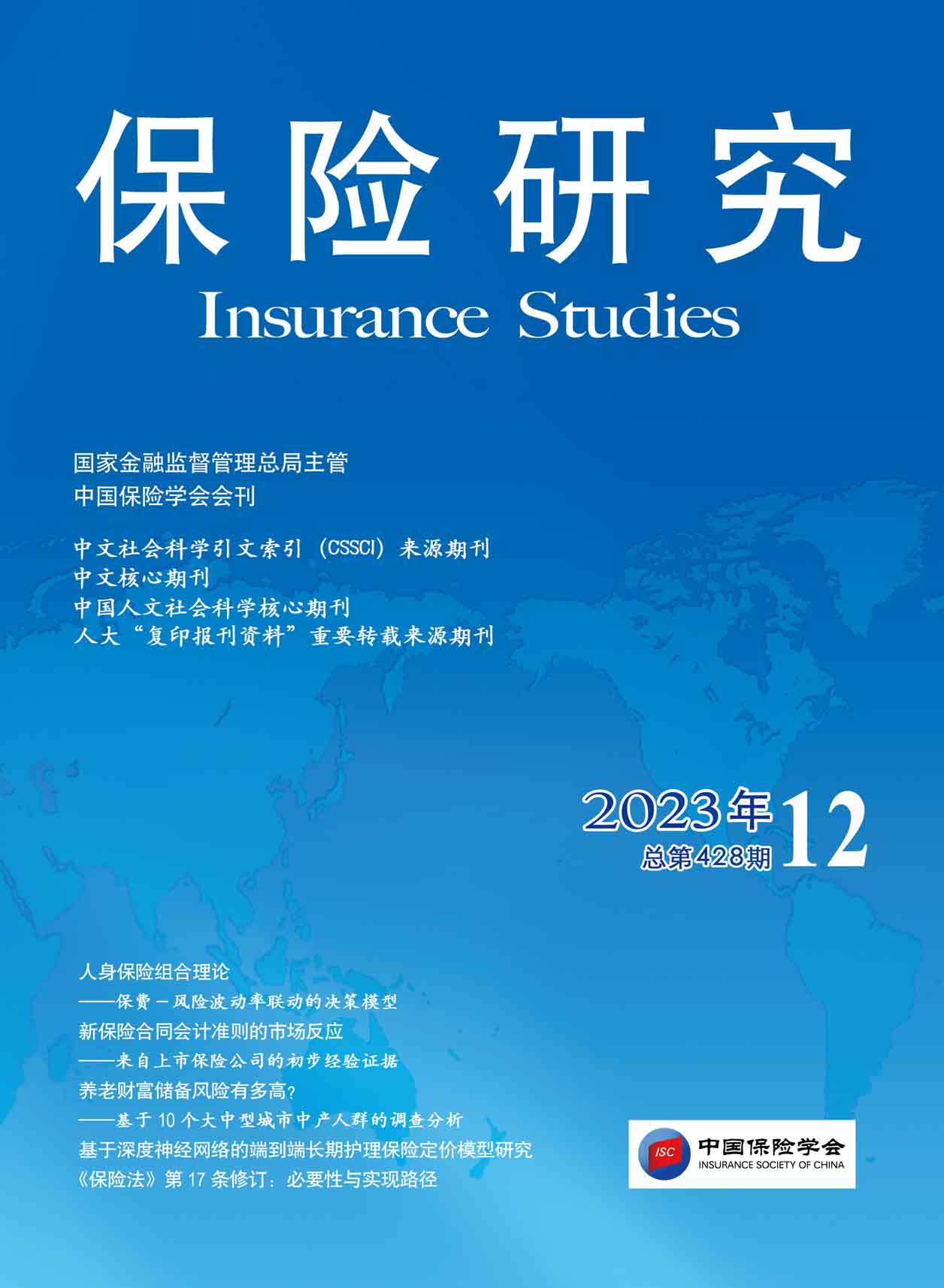
《保险研究》20231203-《套期保值效果与“保险+期货”赔付合理性——基于玉米和大豆试点项目的实证分析》(鞠荣华、顾巧静)
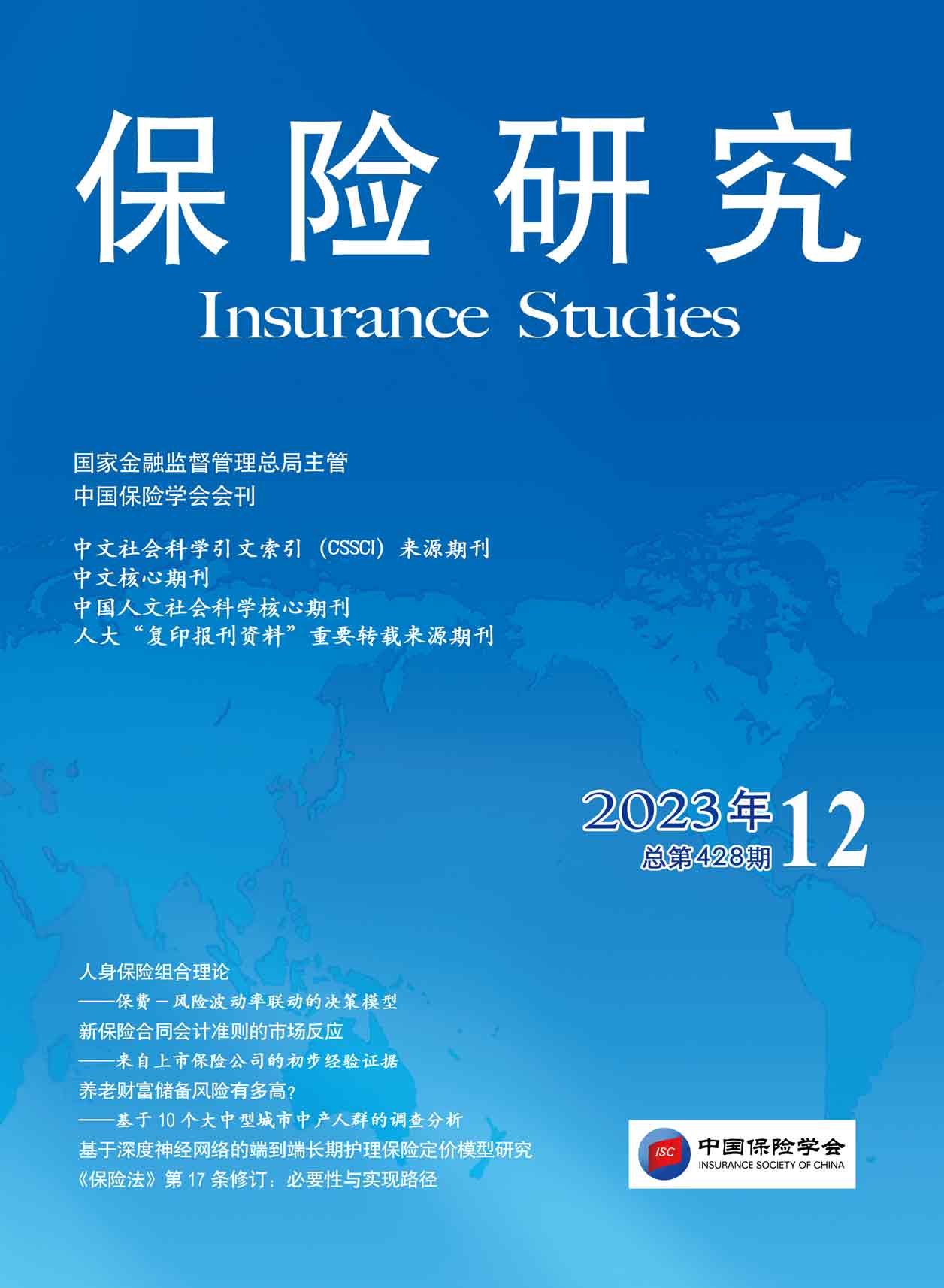
《保险研究》20231204-《养老财富储备风险有多高?——基于10个大中型城市中产人群的调查分析》(冯扬、房连泉)
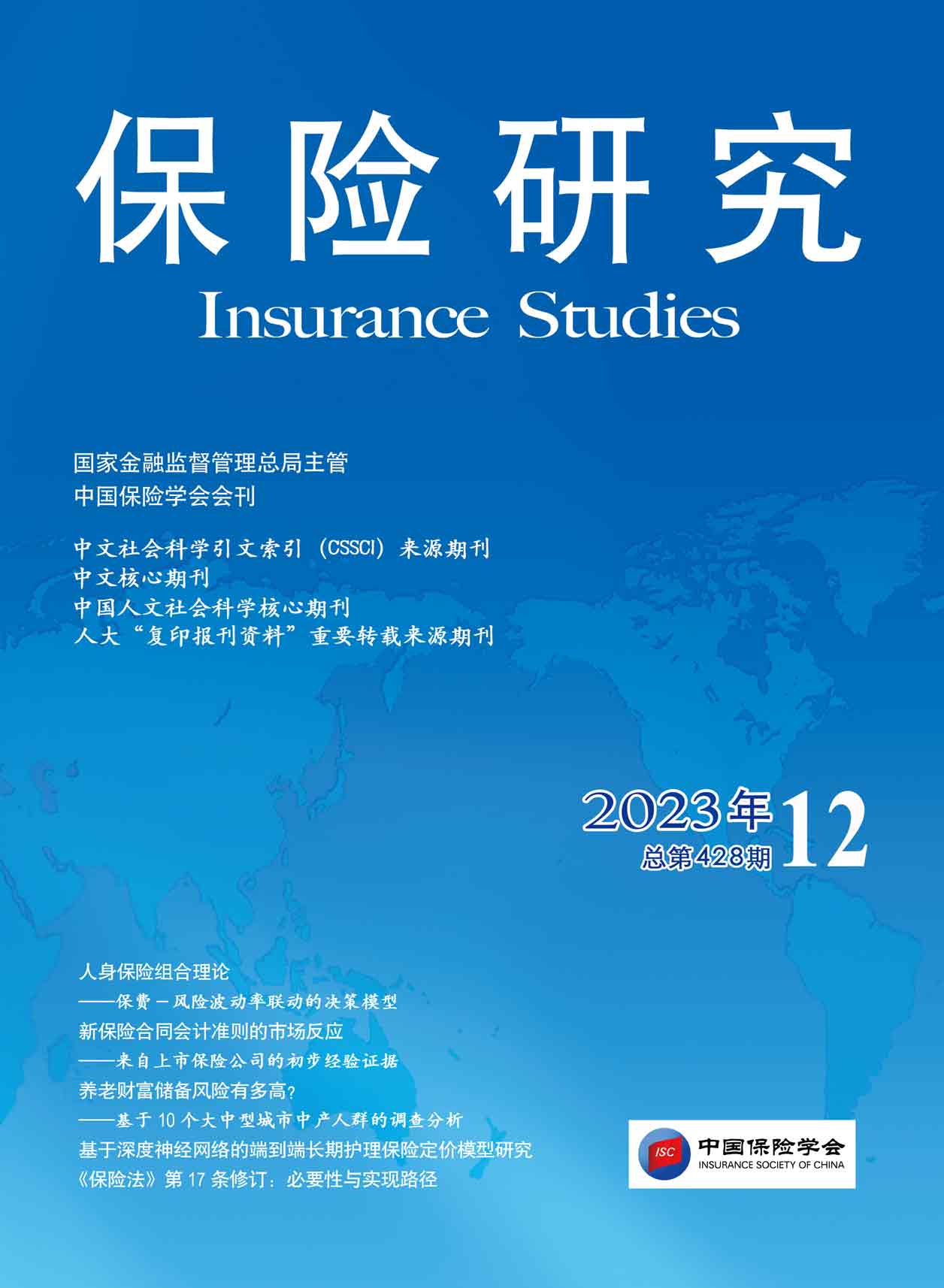
《保险研究》20231205-《社保基金持股对企业ESG改善的实证分析》(杜秋萱、姜岩、侯德帅)
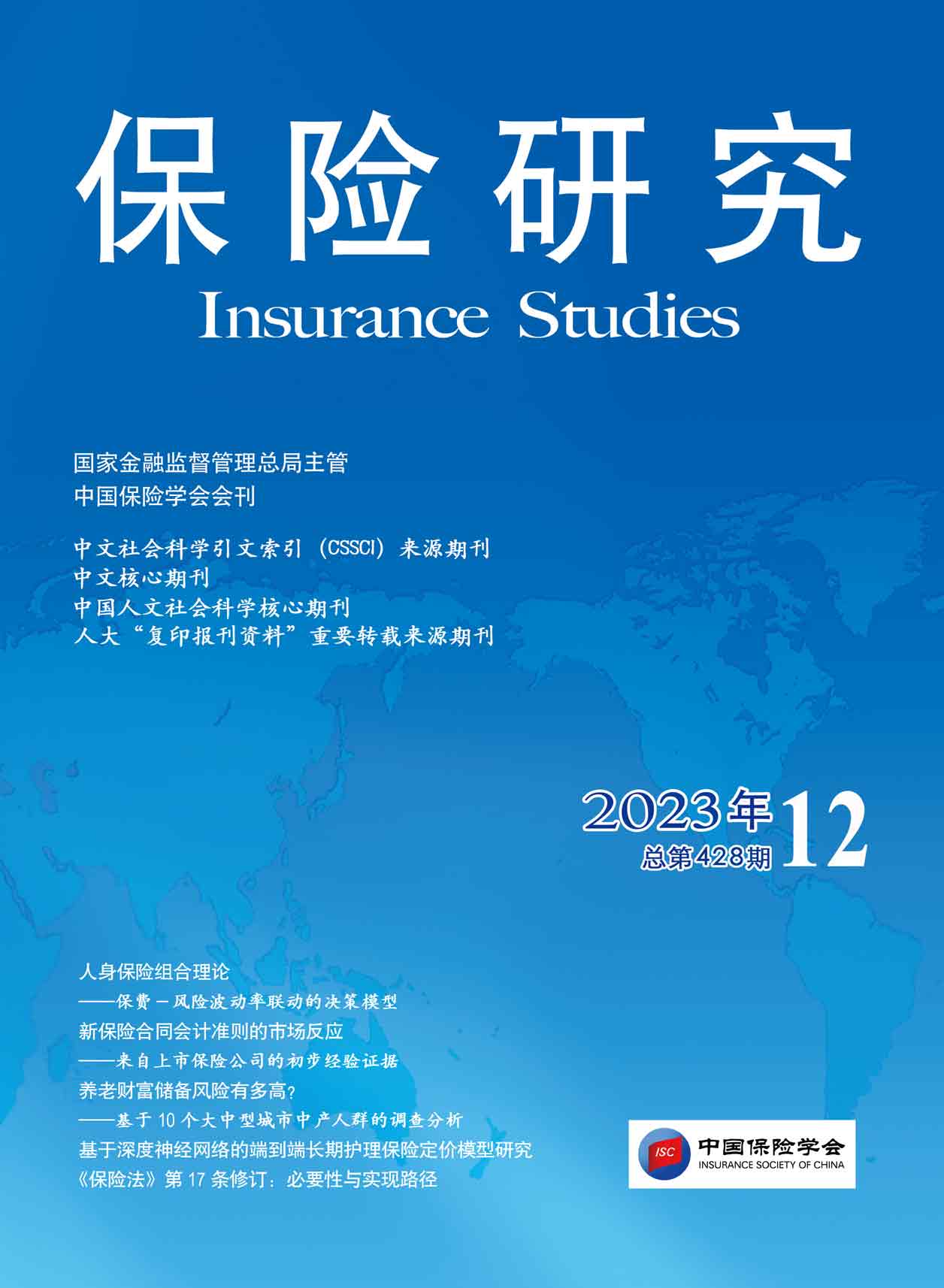
《保险研究》20231206-《基于深度神经网络的端到端长期护理保险定价模型研究》(仇春涓、刘守贤、 张楠)
